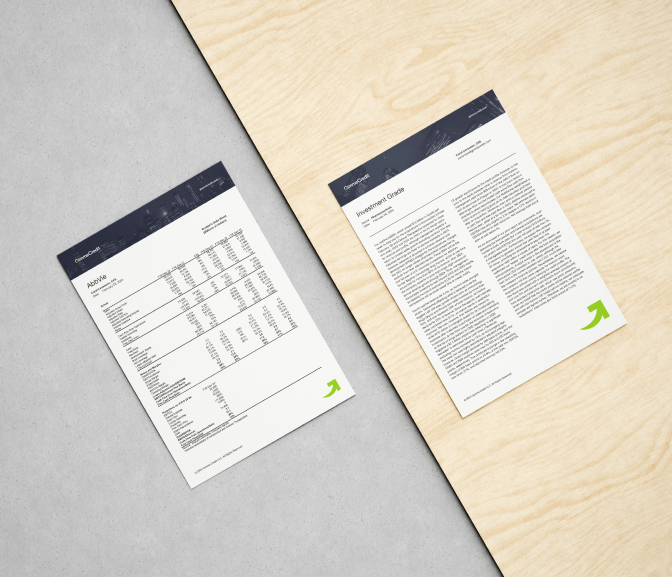Corporate Bond Reports

Introduction
Time-sensitive, in-depth specialist reports
Once you become a client you will have access to our research recommendations and a range of additional information such as upgrades, downgrades, breaking news and financial metrics. We also provide specialist reports on a regular basis which highlight potential investment opportunities.
We appreciate that timing is critical. Therefore, our reports are delivered promptly to your inbox and are also available on our research platform. The reports include up-to-date market intelligence together with expert analysis and recommendations. Covering a range of different topics, we avoid company jargon, instead delivering definitive recommendations in an easy to understand manner.
About Us
Bottom-up approach
Whether looking at our top and bottom buys, industry or specialist reports, they are all based on our bottom-up approach to corporate bond ratings research. This allows us to compare and contrast individual company scores and prospects, often identifying individual value and emerging sector trends.
While the facts, figures and core financials are the foundations for our recommendations, industry and specialist reports also benefit hugely from the expertise and experience of our analysts. Transparency is also an important element of our reports, with supporting data sheets providing invaluable background.

Introduction
Industry reports
There is no specific timetable for industry reports as they are more focused and driven by events and opportunities going forward. Conscious that investment windows of opportunity can be relatively short, our reports are concise and to the point and delivered as quickly as possible to our clients.
Our team of growing analysts cover a wide range of sectors, with each industry report written by an expert in that particular field. As well as providing invaluable insight into wider industry prospects, each report will highlight the relative value of the companies we cover and their prospects going forward.
About Us
How do clients benefit from our reports?
Yesterday’s news can soon be outdated, which is why we deliver our industry and specialist reports, together with daily updates, as promptly as possible. Our independent status means there are no outside influences or third-party obligations. Instead, all clients are treated equally with everyone having access to the same report.
Clients also have access to historical reports, where they can compare and contrast ideas, recommendations and the changing face of different sectors and companies.

Industries We Cover

FAQs
Do you produce variations of individual reports?
No. Our business is built on equality, with all clients treated equally and receiving the same research and reports.
Who are your typical clients?
Our typical clients include institutional buy-side and sell-side firms, pension funds, corporations and independent advisers and brokers. Many of them deal directly with us although some will access research via third party commercial platforms.
What is the best way to receive future updates?
Email alerts tend to be the best way to keep up-to-date with new reports, ensuring you remain informed even on the move.

Start Your Complimentary Two-Week Trial of our Research Platform

